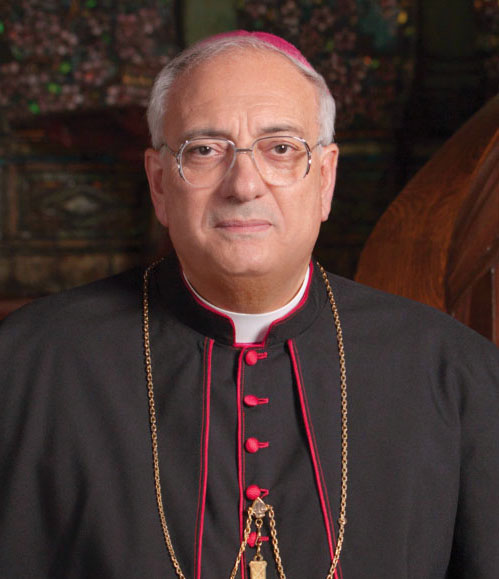Bishop of Brooklyn
Having just returned from the annual November United States Bishops’ General Meeting, I thought that I would share some thoughts on the issue of sexual abuse in the Church. The first day of our annual meeting was a full-day retreat, where we all had an opportunity to pray together and celebrate the Liturgy of the Hours and the Eucharist. Also, we listened to three distinct talks; the first by two victims of sexual abuse, one of whom is a member of our Diocesan Review Board and was a member of our diocese. The second talk was given by a laywoman working for the Church in various capacities and the third talk was given by a woman religious. All of these speakers gave us much to think about as we began to contemplate how we could show our people that truly they are protected.
The first day of the meetings was overshadowed by the announcement by Cardinal Daniel DiNardo, President of the Conference, that the Holy See asked that we not take a final vote on our documents. In effect, we were asked to wait for the results of the upcoming February meeting for further guidance.
Four documents were considered and worked on pending final presentation to the Holy See. As mentioned, this will be after the February meeting with the Holy Father by all of the Presidents of the Episcopal conferences throughout the world. The concern of our meeting was to assure that Bishops themselves were held accountable for their own actions and also for the handling of sex abuse in the diocese.
The four documents considered were 1) Outsourced Manned Reporting Line; 2) Standards of Episcopal Conduct; 3) a Special Lay Commission to pursue allegations of sexual abuse against bishops, or their handling of such cases and 4) Protocols for Bishops Removed or Resigned.
There was really no consensus reached on all issues; however, there was a thorough airing of all of the issues. After the results of the February meeting, a clearer path may emerge at the U.S. Bishops next meeting in June. This will give us the opportunity to complete all of these documents. A task force has been named comprised of three former presidents of the USCCB, including Cardinal Dolan, to shepherd the documents to final completion.
Each time the Bishops gather together at the Bishops’ Conference, they truly put out into the deep waters of contemporary issues. These waters certainly have been turbulent over the last several months. One doctor of psychology from Los Angeles spoke to the Bishops and I believe she pinpointed that what we are feeling and the difficulty that we are experiencing, especially with the accusation against Archbishop McCarrick. She said, “We are feeling betrayal trauma.” Betrayal is one of the most difficult issues that we can overcome in our lives. Personal betrayal by those whom we trusted has been characteristic of the sex abuse history in our Church. Sex abuse is one of the most difficult traumas to overcome and deal with each day. The Pennsylvania Attorney General report also contributed to our betrayal trauma by giving the graphic details of what sexual abuse is really about. We must come together as a Church to deal with our pain, suffering and most especially, that of the victims. At the same time, we must recognize that betrayal of our trust is something that we all feel ourselves and is something that we must work to restore, so that the good works of our Church can continue.





